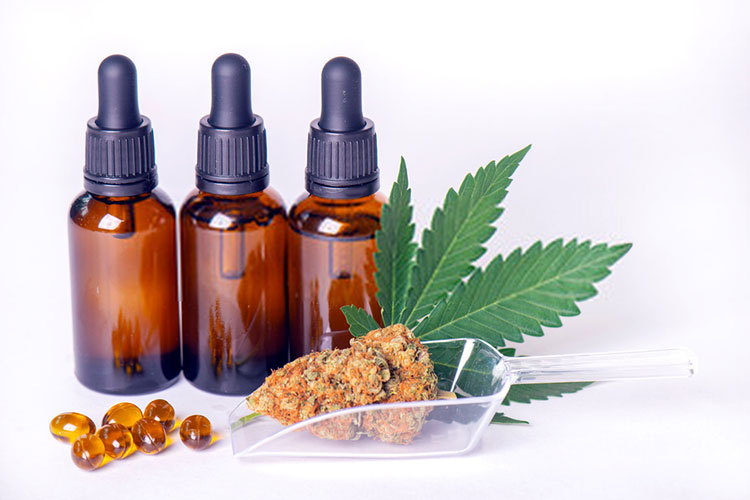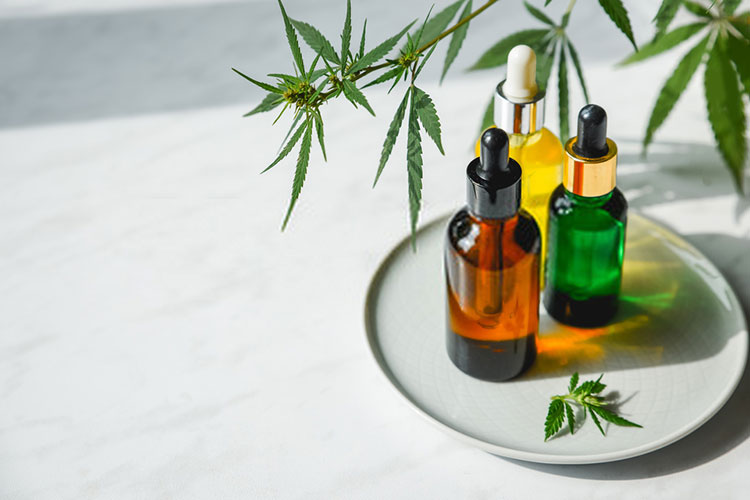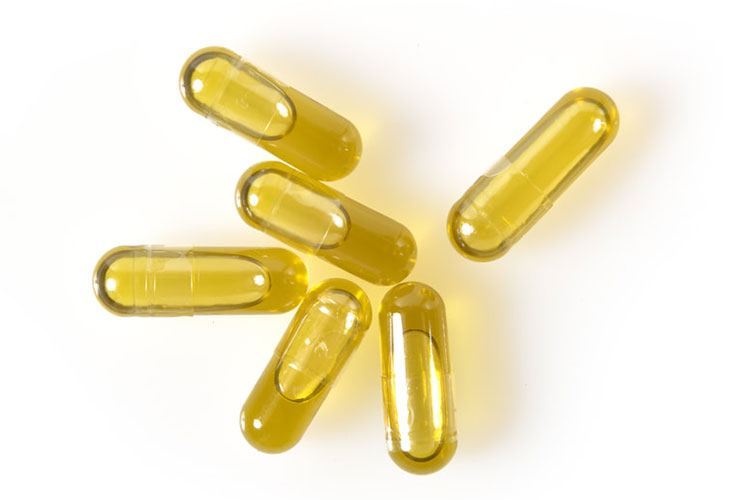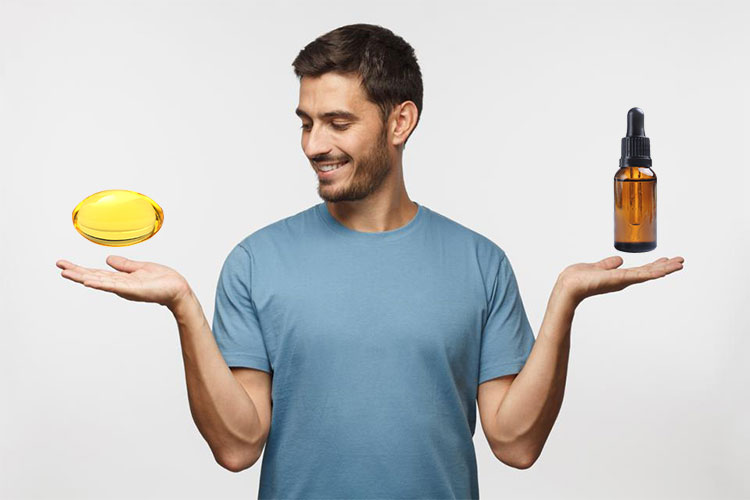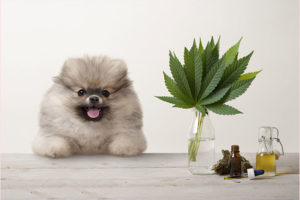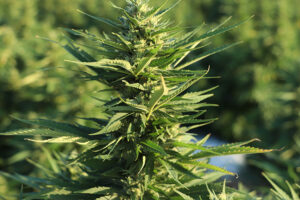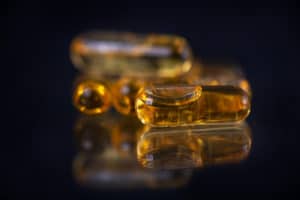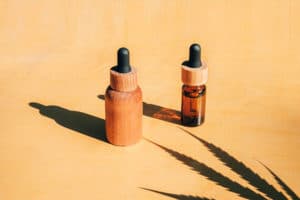From edibles to capsules to topical rubs, the variety of cannabis products on the market today is daunting. Something akin to the Wild West, we are on the new frontier of legalized cannabinoids.
Two of the most popular forms of ingestible CBD are CBD tincture and CBD capsule. One method is not necessarily better than the other—your choice is more a matter of personal preference and your health objectives. However, knowledge is crucial in determining the best choice for your needs.
What Is CBD?
The terms cannabis, hemp, and marijuana often get interwoven as they pertain to CBD. Most people associate the term cannabis with “getting stoned” on the cannabinoid tetrahydrocannabinol (THC) found in high doses in marijuana. Cannabis is a plant classification that contains up to 113 cannabinoid compounds, with hemp and marijuana the two main types of cannabis as distinguished by the government based on their relative levels of THC.
Congress and the FDA impose a legal limit of 0.3% THC (not enough to get high) for those cannabis plants called hemp. Another cannabinoid, Cannabidiol (CBD), is found in both types of cannabis, but most CBD extracted to make topical or ingestible products, such as CBD tincture and capsules, derives from the low-THC hemp plant.
Your Body and CBD
All mammals have a built-in endocannabinoid system (ECS) with receptors located throughout the body. Our body’s ECS regulates our primary bodily functions, including mood, sleep, appetite, memory, reproduction, and pain sensitivity, to name a few. Studies have shown that CBD oil can interact with our natural ECS receptors to promote overall health and improve conditions relating to:
- Muscle and joint pain
- Insomnia and sleep disturbances
- Skin issues, including acne and eczema
- Depression, anxiety, and mood disorders
- Side-effects resulting from cancer treatment
- Seizures and epilepsy
What Is CBD Tincture?
A tincture is a concentrated herbal extract dispensed in liquid form. People have used tinctures for centuries, and they are a staple in alternative and holistic medicine. They come in small apothecary bottles, and you administer them in droplet form.
Producers make CBD tincture by separating the oil from the hemp plant. They obtain the CBD secretions through alcohol or CO₂ extraction. Next, they strain and remove the remains of the plant, and voila! They have a highly potent CBD tincture.
What Are the Advantages and Disadvantages of a CBD Tincture?
The main advantage of a CBD tincture is its potency and rapid absorption into the body. You administer a tincture by a dropper directly under the tongue, bypassing the digestive tract for faster delivery of benefits to the bloodstream.
Another advantage of the CBD tincture is the ability to modify your portion. If you don’t notice any effect after taking your first CBD tincture, you can increase the dosage amount the next time. Conversely, if your first dosage has too strong an effect, you can simply reduce your tincture serving. CBD in tincture form gives you the most flexibility to customize your dosage.
The primary disadvantage of a CBD tincture is the taste, which can be quite pungent and overpowering. Fortunately, CBD tinctures are available in a variety of flavors to make sublingual (under the tongue) application more palatable. CBD tinctures are water-soluble, and you can mix them with food or beverages, although this will delay the absorption into your bloodstream since they will go through your digestive tract.
Lastly, CBD tinctures do not travel as well as CBD capsules. You face the possibility of the bottle leaking or breaking in your luggage. Also, they are more conspicuous when going through a TSA screening, and you will need to check the legal status of CBD in any state or country to which you travel since it varies by state within the U.S. and then by country.
Bioavailability and CBD
Bioavailability measures the amount and rate at which your bloodstream absorbs a substance. The rate of bioavailability corresponds with the method you use to administer your CBD as well as your body’s constitution. The bioavailability of CBD tincture vs. CBD capsule is roughly the same. However, your bloodstream will absorb the CBD tincture more quickly. Still, several reasons exist why people may opt for the CBD capsule.
What Is a CBD Capsule?
CBD capsule production involves two commonly used methods and produces two types:
- A CBD isolate capsule, which is a powdered substance infused into capsule form
- A CBD oil capsule, which includes CBD oil plus carrier agents
Both types use a process distinct from the traditional CBD tincture methods.
- The CBD isolate is a crystalline powder derived from the harvested hemp and mixed with a carrier agent such as coconut oil. The carrier oils aid in the body’s absorption of the CBD.
- Producers extract the CBD oil for the capsules the same way that they extract the CBD tincture. A carrier such as hemp or sunflower oil gets added to the CBD oil capsule.
What Are the Advantages and Disadvantages of the CBD Capsule?
Most of us are more familiar with taking our supplements and medication in pill or capsule form—hence, the popularity of CBD capsules. Some advantages of the capsule form of CBD include:
- CBD capsules are discreet, convenient, and they travel well. Also, they come in premeasured dosages, so no guessing or experimentation is involved.
- CBD Capsules are easy on the stomach, go down well with water, and leave no pungent aftertaste. Quality CBD capsules are hermetically sealed. This process ensures their potency and freshness.
- The carrier agents used in quality CBD capsules should increase their bioavailability.
Some disadvantages of the capsule form are that:
- Your digestive tract breaks down CBD capsules before it releases them into your system. Therefore, its effects will most likely not be immediate.
- Because CBD capsules use carrier agents such as hemp oil, olive oil, or coconut oil, there is a slight risk of adverse reaction. Be sure to read and understand the complete list of ingredients in your CBD capsules before administering.
CBD Tincture vs. Capsule—Which One is Better for Me?
CBD tinctures and capsules—as well as edibles and topical treatments—all take a different pathway through the body. Their absorption and duration of benefit will vary accordingly.
Before you choose a CBD option, think about what you want to achieve by taking CBD. Are you trying to manage chronic pain? If so, the CBD tincture might be the best choice for you. If you are trying to regulate your mood or sleep patterns, the CBD capsules will probably work just fine. Your preferred method depends on your body and your health objectives.
One Final Note
Whether you are taking CBD tincture or capsule, it is important to monitor your treatment. Take notes or keep a journal (including the date and time of each dose) to keep track of your progress. If you do not see the desired results, you may want to modify or increase your dosage.
FAQs About CBD Tincture vs CBD Capsules
Question: What is the difference between CBD and Marijuana?
Answer: Marijuana is what the public calls the varieties of the Cannabis Sativa plant that have higher levels of THC.
Varieties with only trace elements of this psychoactive chemical compound became classified as hemp by the government to distinguish this more utility-based plant variation from its recreational cousin. Medicinal CBD usually derives from hemp, including CBD tinctures and capsules, which contain less than 0.3% THC and can create numerous health benefits—without the buzz.
Question: What is the difference between CBD tincture and CBD oil?
Answer: Both CBD tincture and CBD oil are liquid concentrates of CBD. They are visually similar and come in small bottles with droppers. CBD tincture and CBD oil share certain properties and effects when ingested. However, their production method is different: CBD tinctures infuse raw hemp material into a base of alcohol or a similar water-based carrier. CBD isolate infused into a carrier oil creates CBD oi.
Question: How much CBD should I be taking?
Answer: Your CBD product will come with dosage guidelines. Since there is no official evidence-based protocol in place, start with the minimum dosage, no more than 2-5 mg. If necessary, you can increase the dosage over time until you have achieved your desired results. If you are taking any medication, be sure to consult your doctor before starting a CBD regimen.
Question: Will I get high if I increase the dosage of my CBD tincture?
Answer: Many people correlate cannabis with “getting high” from the cannabinoid THC. Congress passed the Farm Bill in 2018, which allows the production and sale of cannabis products with THC levels of less than 0.3%. Any products derived from hemp only contain trace amounts and not enough THC to get high. You may also purchase what is called broad-spectrum CBD, which has had all the THC removed.
Question: There are so many products out there. How will I know I’m getting the best quality?
Answer: Always purchase your CBD tincture or capsules from a reputable supplier. Be sure that the seller or manufacturer can display a Third-Party Lab report on your product batch to ensure its safety and efficacy.
Question: Can I put a CBD tincture or an open CBD capsule on my skin?
Answer: Do not apply CBD tincture or capsules directly to your skin. CBD Tinctures and capsules are for internal consumption only. Skin preparations containing CBD are widely available. They are specially formulated for topical use and contain beneficial amounts of CBD.
Question: Can I mix CBD tincture with food?
Answer: Yes, you can add CBD tinctures to food or beverages. Be aware that if you consume food or liquids with your CBD tincture, it will take longer for the benefits to kick in.
Question: Is CBD oil legal in the United States?
Answer: The FDA has not approved ingestible cannabis products in the U.S., but about half of the states in the U.S. have legalized them. Please research the status of your home state.
Question: Is CBD a natural product?
Answer: Yes, CBD is a naturally occurring compound derived from the cannabis (hemp) plant. It is not synthetic.
Question: How long does a CBD capsule stay in your system?
Answer: Typically, a CBD capsule stays in your system for 2-5 days. However, traces can remain in your system for weeks, depending on your dosage and frequency of use.
Question: Do CBD Capsules work?
Answer: There is evidence that CBD can successfully manage chronic pain, sleep disorders, and anxiety. There is no concrete evidence that CBD will cure a terminal illness.
Question: Can I take CBD capsules at bedtime?
Answer: Yes, CBD capsules are safe for bedtime use. When taken at least one hour before bed, CBD will often promote restful sleep and reduce insomnia.
